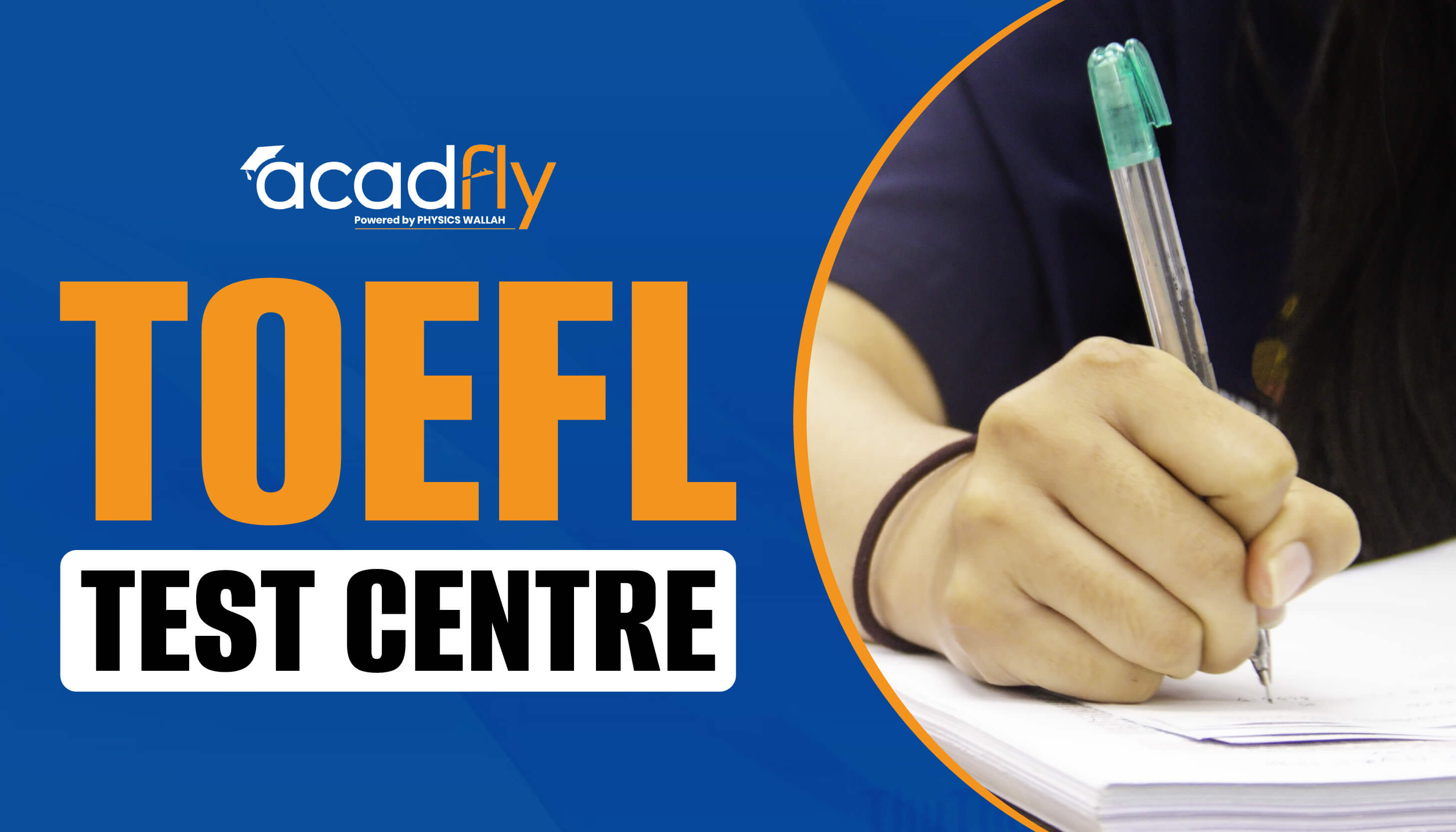
How to Prepare for the OET: Candidates should be aware that it is critical to arrive prepared for their OET test. In this article, we will discuss top Preparation Tips for Candidates Looking to Ace the OET Exam. The Occupational English Test, or OET, is a unique English language test created for health care workers and administered by CBLA, or Cambridge Boxhill Language Assessment, a joint venture between Cambridge English and Boxhill Institute.
Professionals seeking to work or study in the healthcare sector in Australia, Canada, Ireland, the Maldives, Malta, Namibia, New Zealand, the Philippines, Qatar, Singapore, Spain, Ukraine, the United Kingdom, the United Arab Emirates, and the United States of America must apply for the OET in order to demonstrate their level of English proficiency and deliver superior healthcare.
How to Prepare for the OET?
Are you a healthcare practitioner who wants to work in an English-speaking country? If so, you've probably heard of the Occupational English Test (OET), which is a language competency exam designed for the healthcare field. To succeed in this critical evaluation, you must first comprehend the test format and then use effective techniques.
Occupational English Training (OET), which is chosen by specialised professionals such as nurses, physicians, and chemists, is an English language competence exam similar to the IELTS, TOEFL, and PTE, but for specific professions. It focusses on communication in healthcare settings and offers a valid and accurate evaluation of all four language skills: listening, speaking, reading, and writing.
In this post, we'll provide some helpful tips and tricks to help you pass the OET examination.
Enhance your skills
Once you've discovered your flaws, work on improving them. This does not imply taking a practice test after a practice exam. While practice exams help you become acquainted with the structure, they will not be identical to the actual test questions.
Instead, focus on improving your language abilities. Below are some resources and strategies:
-
OET's Online Courses: Our four online courses, Reading, Listening, Writing, and Speaking, will teach you the language, skills, and methods for each component of the exam. Each course includes videos, exercises, and practice problems to help you gain confidence before the test.
-
Q&A Live Session: Join the bimonthly live Q&A sessions to ask an OET specialist about your preparation questions.
-
Study with a teacher: Enrol in a preparatory course with one of our preparation partners. These skilled tutors can significantly improve your language skills and raise your chances of success on exam day. If there isn't a course provider near you, select one that offers online courses.
-
Self-study: Use the materials provided on the OET website. These sites are often updated with tips, language articles, and blog entries. Consider purchasing preparatory items from the OET shop, such as practice test booklets and manuals.
Understand the Assessment Criteria
In addition to knowing your faults, you must be clear on what the assessors are searching for. For writing and speaking, each criterion has specific level descriptions to help you understand how OET assessors score you.
-
Writing assessment requirements include purpose, substance, conciseness and clarity, genre and style, structure and layout, and language.
-
Speaking assessment requirements include linguistic and clinical communication abilities such as intelligibility, fluency, connection building, and information collection.
Practise Regularly
Consistency is key to success while preparing for the OET. Take use of the official OET preparation resources and sample exams to become intimately familiar with the exam's content and scheduling. Regular practice will not only help you get more comfortable with the test, but it will also boost your confidence and identify areas for growth.
Understand the OET Format
Before starting your OET preparation journey, you need to have a thorough grasp of the exam's format. The Occupational English Test (OET) has four subtests: hearing, reading, writing, and speaking. Each subtest is painstakingly developed to assess your language abilities in a healthcare setting. To succeed, you must understand the unique criteria and intricacies of each sub-test. The hearing sub-test, for example, will examine your ability to interpret spoken English in healthcare facilities.
This encompasses patient consultations, lectures, and conversations. This requires familiarity with medical language as well as the ability to detect crucial facts. The Reading subtest assesses your understanding of medical materials such as patient case notes, medical journal articles, and healthcare recommendations. It necessitates not just a comprehension of the material, but also the capacity to retrieve critical information effectively. The writing subtest assesses your ability to compose healthcare-related letters. These letters must follow strict formatting requirements and address the assigned assignment effectively.
Effective structure, clarity, and conformity to the OET writing requirements are required. Finally, the Speaking sub-test requires you to engage in healthcare-related conversations through role-playing scenarios. Your ability to speak effectively, pronounce correctly, maintain fluency, and respond empathetically will be evaluated.
Time Management
Effective time management is an important part of performing well on the OET test. Set specified time restrictions for each portion of the test and stick to them strictly during your practice sessions. Practicing under timed settings can help you improve your ability to finish all tasks within the time limit on exam day.
Reading and Listening Comprehension
Building strong reading and listening comprehension abilities is critical for success on both the Reading and Listening subtests. To improve your skills, read actual medical materials and listen to audio recordings on a regular basis. Pay close attention to details and practise recognising crucial information, which will be extremely useful during the test.
Speaking Sub-Test
You will take part in role-play situations based on healthcare encounters. To master this level, you must practise your English in a medical environment. Concentrate on issues like pronunciation, fluency, and efficient communication. Recording your practice sessions may be quite valuable, allowing you to identify areas for development and hone your speaking abilities.
Role-Playing Scenarios
To succeed in the speaking sub-test, you must become acquainted with popular role-play scenarios that emerge regularly. Collaborate with a study partner to practise real-life interactions with patients or colleagues. This hands-on approach will boost your confidence and get you ready for the actual test.
Writing Sub-Test
The OET writing sub-test requires the ability to create healthcare-related letters that match particular requirements. Understand the OET writing standards, which cover content, organisation, and language. Practise writing letters that not only cover all of the needed elements but also follow the OET's specified structure and guidelines.
Enhance Your English Abilities
Improving your English language abilities, particularly in the context of healthcare, is critical to OET success. Consider learning the language via reading medical publications, research papers, and healthcare-related news pieces. Watching documentaries or films on healthcare can also help you broaden your vocabulary and better understand medical terminology and ideas.
Grammar and Vocabulary
Improve your grammar and broaden your medical vocabulary. Use tools like medical dictionaries and terminology lists to improve your language skills. A strong understanding of medical terminology is essential for success on the OET since it displays your ability to communicate effectively in a healthcare environment.
Mock Exams
As your OET test date approaches, practise full-length mock exams under timed settings. This practice will not only help you get more familiar with the test structure, but will also boost your confidence in your talents. Carefully examine your performance in mock tests to identify areas for growth, allowing you to fine-tune your study method.
Begin Early
Regardless of your present level of English, getting started early is critical. The OET Test is a high-stakes English exam, which means your results will be utilised by businesses that demand the greatest levels of security and authenticity. Successful applicants will be accountable for patients' health and safety, thus rigorous preparation is required.
Consider the OET Test to be your driving test. You wouldn't consider scheduling your driving test until you were satisfied you could do all of the essential movements and drive safely in a variety of situations. Similarly, you must allow yourself time to prepare for the various sections of the OET Test. Even if the exam setting is familiar, thinking you'll pass without preparation is dangerous.
Candidates who want to thrive in their OET test must begin their preparation early. This will help students to grasp the exam syllabus and assign equal weight to all aspects of the OET examination. Imagine taking a driving test in a car with controls on the opposite side; you'd still need to rehearse and become acquainted with the new layout.
Be honest with yourself
It is critical for the candidate to be forthright about his approach to the exam. The OET test is a high-level exam designed to assess medical practitioners' English ability. As a result, the candidate must be conscious of his English language abilities and work on areas that require improvement. Going unprepared for the exam will only lead to poor outcomes.
Identifying Weak Sections
The OET test consists of several components. Candidates must identify and focus on their weakest regions. This would allow them to perform well on the test while maintaining a balanced approach to the OET exam.
Taking any English language test, including the OET, can be both an exhilarating and humbling experience. It's a high-stakes test, so you should be completely prepared. Before you begin preparing for your Occupational English Test, you should have a thorough understanding of the various components. This can help you feel more confident on exam day and increase your chances of earning the desired score.
How to Prepare for OET FAQs
What is the best way to start preparing for OET?
How much time is required to prepare for OET exam?
Are there any free resources to prepare for OET?
Is it necessary to join a coaching class for OET?
How can I improve my writing and speaking for OET?









